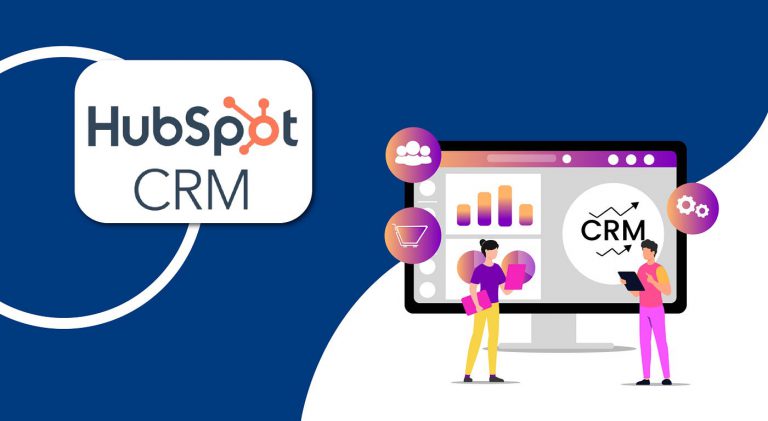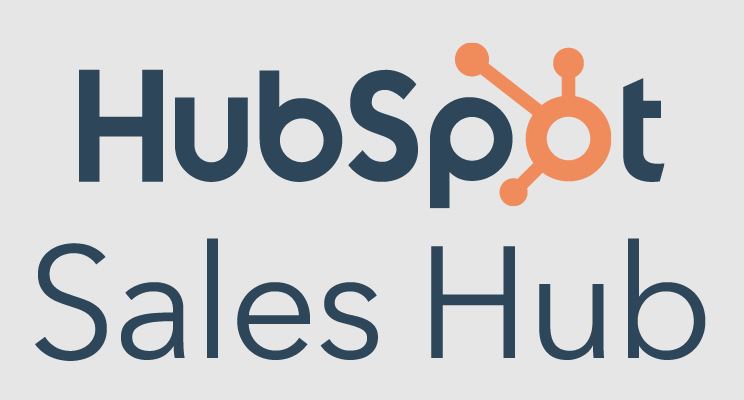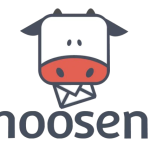Ecommerce marketing is an essential component of any online business strategy. It entails using a variety of digital marketing strategies to promote an ecommerce brand, drive targeted traffic to the online store, and convert visitors into loyal customers.
To stay ahead of the competition and maximize their online sales in today’s ever-changing digital landscape, ecommerce businesses must employ a variety of marketing strategies. In this post, we’ll look at email marketing, SMS marketing, influencer marketing, search engine optimization (SEO), PPC advertising, content marketing, social media marketing, and affiliate marketing.
Understanding these strategies allows ecommerce businesses to develop a comprehensive marketing plan to attract, engage, and convert potential buyers, ultimately leading to increased revenue and success in the competitive online marketplace.
What is Ecommerce Marketing?
Ecommerce marketing refers to the strategies and tactics employed by online businesses to promote their products or services and drive sales through various digital channels.
It involves optimizing the website’s shopping experience, engaging potential customers throughout their online journey, and creating scenarios that encourage repeat purchases.
Ecommerce marketing is crucial for online businesses to increase their visibility, attract potential buyers, and ultimately generate revenue. Let me quickly show you the types of Ecommerce marketing that are being used in the ecommerce industry today.
Email marketing
Email marketing is a powerful tool for ecommerce businesses to communicate with their customers directly. It involves sending targeted emails to subscribers with personalized content, offers, promotions, and updates about products or services. Email marketing can help build brand loyalty, drive traffic to the website, and increase sales by nurturing customer relationships and encouraging repeat purchases.
SMS marketing
SMS marketing involves sending promotional messages and updates to customers’ mobile phones via text messages. This type of marketing can be highly effective in reaching customers quickly and directly, especially for time-sensitive promotions or limited-time offers. SMS marketing can complement other ecommerce marketing strategies and help businesses stay connected with their customers on the go.
Influencer marketing
Influencer marketing involves partnering with influencers or popular individuals on social media who have a large following and influence over their audience. Influencers can promote products or services through sponsored posts, reviews, or endorsements, helping ecommerce businesses reach new audiences and increase brand awareness. Influencer marketing can be a cost-effective way to leverage the credibility and influence of popular personalities to drive sales.
Search engine optimization
SEO is the process of optimizing a website to rank higher in search engine results pages (SERPs) and increase organic (non-paid) traffic. Ecommerce businesses can use SEO strategies, such as keyword research, on-page optimization, and link building, to improve their website’s visibility in search results and attract targeted traffic. SEO can be a long-term strategy that can drive consistent traffic and sales to an ecommerce website.
PPC advertising
PPC (Pay-Per-Click) advertising involves placing ads on search engines or social media platforms and paying for clicks or impressions. Ecommerce businesses can use PPC advertising to drive targeted traffic to their website and increase sales. Popular platforms for PPC advertising include Google Ads, Facebook Ads, and Instagram Ads. PPC advertising requires careful planning, monitoring, and optimization to ensure a positive return on investment (ROI).
Content marketing
Content marketing involves creating valuable and relevant content, such as blog posts, articles, videos, infographics, and social media posts, to attract and engage customers. Ecommerce businesses can use content marketing to provide valuable information, solve problems, and educate their target audience. Content marketing can help build brand authority, drive traffic to the website, and nurture customer relationships, ultimately leading to increased sales.
Social media marketing
Social media marketing involves using social media platforms, such as Facebook, Instagram, Twitter, LinkedIn, and Pinterest, to promote products or services and engage with customers. Ecommerce businesses can use social media marketing to create and share engaging content, run promotions, interact with customers, and build a community around their brand. Social media marketing can be a powerful tool to increase brand awareness, drive traffic to the website, and boost sales.
Affiliate marketing
Affiliate marketing involves partnering with affiliates or third-party websites that promote products or services on behalf of an ecommerce business in exchange for a commission for each sale or referral. Ecommerce businesses can use affiliate marketing to leverage the reach and influence of affiliates to promote their products or services to a wider audience. Affiliate marketing can be a cost-effective way to drive sales and increase brand exposure, as businesses only pay for results.
Email Marketing In Ecommerce
In today’s competitive ecommerce landscape, businesses need effective marketing strategies to attract and retain customers. One powerful tool that has stood the test of time is email marketing. Email marketing is a tried-and-true tactic that allows ecommerce businesses to communicate directly with their customers and drive sales by delivering personalized content and offers. Let’s take a closer look at why email marketing is essential for ecommerce success and how to make the most of it.
Why is Email Marketing Important for Ecommerce?
Email marketing offers numerous benefits for ecommerce businesses. Here are some key reasons why it should be a part of your ecommerce marketing strategy:
Direct and Personalized Communication
Email allows you to communicate directly with your customers in their inbox, which is a personal and highly accessible space. You can tailor your emails based on customer preferences, behavior, and purchase history, providing personalized content and offers that are relevant to each individual. This personalized approach can help you build customer loyalty and drive repeat purchases.
Cost-Effective
Email marketing is a cost-effective marketing tactic compared to other channels like paid advertising. With email, you can reach a large audience at a relatively low cost, making it an efficient way to generate ROI for your ecommerce business. You can also automate your email campaigns, saving time and effort while delivering timely and relevant content to your customers.
Increased Engagement
Email allows you to engage your customers in a meaningful way. You can send product updates, promotions, newsletters, and other content that adds value to your customers’ lives. By providing valuable information and incentives, you can keep your customers engaged and interested in your brand, leading to higher open rates, click-through rates, and conversion rates.
Drive Traffic and Sales
Email marketing can drive traffic to your website and boost sales. You can use email to promote new products, offer exclusive discounts, and highlight limited-time offers to encourage customers to visit your ecommerce store and make purchases. By strategically using email to showcase your products and drive urgency, you can create a sense of excitement and FOMO (fear of missing out) among your customers, leading to increased conversions.
ECommerce Email Marketing Strategy
E-commerce email marketing is a powerful tool that can help you grow your business and increase your sales. Here are 22 strategies that you can implement immediately for great results:
1. Choose An Email Marketing Service Provider
Select a reliable email marketing service provider that fits your business needs and budget. Popular options include Mailchimp, Constant Contact, and Klaviyo.
2. Start building your mailing list
Create multiple opportunities for customers to subscribe to your email list, such as through pop-up forms, landing pages, and checkout pages. Offer incentives like exclusive discounts or freebies to encourage sign-ups.
3. Send Personalized emails to your audience
Use customer data to send personalized emails that cater to their interests and preferences. Address subscribers by their name and use dynamic content to show relevant product recommendations based on their browsing and purchase history.
4. Tag and segment subscribers
Organize your email list by tagging and segmenting subscribers based on their behaviors, demographics, and preferences. This allows you to send targeted and relevant emails to different groups of subscribers, increasing engagement and conversions.
5. Configure email automation
Set up automated email workflows, such as welcome emails, cart abandonment emails, and post-purchase follow-ups. Automation saves time and helps you deliver timely and relevant emails to your subscribers.
6. Improve email deliverability
Optimize your email deliverability by using a reputable email service provider, using a double opt-in process, keeping your email list clean and updated, and avoiding spammy practices.
7. Use Dynamic Newsletter Content
Make your newsletters engaging and dynamic by using interactive elements such as GIFs, videos, and polls. This encourages subscribers to interact with your emails and increases their interest in your content.
8. Understand Email Marketing laws
Familiarize yourself with email marketing laws, such as the CAN-SPAM Act and GDPR, and ensure that your email marketing practices comply with these regulations to avoid legal issues.
9. Embrace User-Generated Content (UGC)
Incorporate UGC, such as customer reviews, testimonials, and user-generated photos, in your emails to build trust and social proof. This can help you increase conversions and establish a loyal customer base.
10. Use Ecommerce AI Tools
Leverage the power of artificial intelligence (AI) tools for e-commerce email marketing. AI can help you analyze customer data, optimize email content, and automate email campaigns for better results.
11. Clean Up Your Email List
Regularly clean up your email list by removing inactive subscribers, correcting invalid email addresses, and managing unsubscribes. This helps you maintain a healthy email list and ensures that your emails are reaching engaged recipients.
12. Employ SMS Marketing
Complement your email marketing efforts with SMS marketing to reach customers who prefer text messages over emails. Use SMS for order updates, promotions, and personalized offers to increase customer engagement.
13. Cross-sell and upsell your products
Utilize email marketing to cross-sell and upsell your products to existing customers. Send targeted emails with relevant product recommendations or exclusive offers to encourage repeat purchases and increase your average order value.
14. Set up cart recovery campaigns
Implement cart recovery campaigns to target customers who abandoned their carts. Send automated emails with personalized incentives, such as discounts or free shipping, to encourage them to complete their purchase.
15. Prepare transactional emails
Optimize your transactional emails, such as order confirmations and shipping notifications, to include relevant product recommendations, cross-selling opportunities, and personalized offers. Turn transactional emails into sales opportunities.
16. Schedule triggered lifecycle emails
Send triggered lifecycle emails based on customer milestones, such as birthdays, anniversaries, or loyalty program milestones. These personalized emails make customers feel special and encourage repeat purchases.
17. Send Emails at the Best Time
Timing is crucial in email marketing. Experiment with different send times and days to determine the optimal time to send emails to your audience. Consider factors such as time zones, customer behavior, and engagement patterns to maximize open rates and click-through rates.
18. Employ Customer Support with live chat
Provide excellent customer support through live chat in your emails. This allows customers to ask questions or seek assistance directly from the email, leading to improved customer satisfaction and loyalty.
19. Host product giveaways
Organize product giveaways exclusively for your email subscribers to encourage engagement and reward their loyalty. This can help generate excitement, drive traffic to your website, and increase sales.
20. Give bonuses for referrals
Offer incentives for customers to refer their friends and family to your e-commerce store through email referrals. This can be in the form of discounts, freebies, or bonus points, encouraging word-of-mouth marketing and expanding your customer base.
21. Be Transparent with the products and Services you sell
Build trust with your email subscribers by being transparent about the products and services you sell. Provide accurate product descriptions, pricing information, and shipping details to establish trust and credibility with your audience.
22. Measure Your Performance
Regularly track and measure the performance of your email marketing campaigns. Monitor key metrics such as open rates, click-through rates, conversion rates, and revenue generated to identify areas for improvement and optimize your email marketing strategies.
Conclusion
Email marketing is a powerful tool for ecommerce businesses to communicate directly with their customers, drive engagement, and boost sales. By delivering personalized and valuable content, optimizing for mobile, using automation and personalization, and adhering to regulations, you can create effective email campaigns that nurture customer relationships and drive revenue. Keep experimenting, analyzing results, and refining your email marketing strategy to stay ahead in the dynamic ecommerce market and maximize your ROI.
Incorporate these e-commerce email marketing strategies into your overall marketing plan to leverage the power of email as a profitable marketing channel. Remember to always follow email marketing laws and regulations, and continually test and optimize your campaigns for the best results. With effective email marketing, you can nurture customer relationships, drive sales, and grow your e-commerce business.
Frequently Asked Questions
How can I effectively use email marketing for my ecommerce business?
To effectively use email marketing for your ecommerce business, focus on building a quality email list, segmenting your list, creating compelling content, optimizing for mobile, and testing and analyzing your campaigns for optimization.
What are some best practices for creating compelling email campaigns?
Best practices for creating compelling email campaigns to boost ecommerce sales include personalization, clear CTAs, engaging visuals, limited-time offers, A/B testing, and post-purchase emails for customer retention.
How do I build a successful email list for my ecommerce store?
Building a successful email list for your ecommerce store involves using opt-in forms, offering incentives, social media promotions, content marketing, segmentation, and maintaining consistent communication with subscribers.
What types of automated email campaigns should I set up?
Automated email campaigns for improving customer retention and loyalty in ecommerce can include post-purchase follow-ups, abandoned cart reminders, product recommendations, replenishment reminders, and personalized offers based on past purchase behavior.
How can I measure the success of my email marketing efforts for my ecommerce store?
To measure the success of your email marketing efforts for your ecommerce store, track metrics such as open rates, click-through rates, conversion rates, and customer engagement. Use A/B testing and data analysis to optimize your strategies for better results, and make data-driven decisions to improve the performance of your email campaigns




